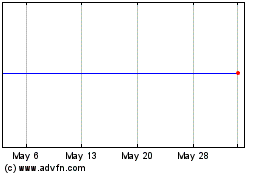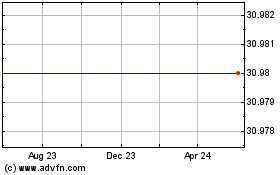BYETTA(R) Extension Study Shows Sustained Improvements in Blood Glucose Control and Progressive Weight Loss After Two Years
June 10 2006 - 11:00AM
PR Newswire (US)
WASHINGTON, D.C., June 10 /PRNewswire-FirstCall/ -- Amylin
Pharmaceuticals, Inc. (NASDAQ:AMLN) and Eli Lilly and Company
(NYSE:LLY) today announced two-year study results showing that
BYETTA(R) (exenatide) injection sustained improvements in blood
sugar control and reduced body weight in people with type 2
diabetes who previously did not achieve adequate control of their
blood sugar on common oral medications. These findings were
presented at the 66th Annual Scientific Sessions of the American
Diabetes Association (ADA) in Washington, D.C. BYETTA (pronounced
bye-A-tuh), was approved in April 2005 as an adjunctive therapy for
patients who are not achieving blood sugar control on metformin
and/or a sulfonylurea. After two years of treatment, patients
sustained an average hemoglobin A1C (A1C) reduction of 1.1 percent
from baseline. This A1C reduction compares to an A1C reduction of
1.1 percent at the end of the initial 30-week clinical trial,
demonstrating sustained efficacy over the two-year period. A1C
measures a person's average glucose level over a three-month period
and is often used by doctors to assess blood glucose management.
The ADA recommends a target A1C of less than 7 percent; fifty
percent of patients in this study reached an A1C of 7 percent or
less, and 31 percent achieved an A1C of 6.5 percent or less after
two years of treatment. Average weight loss improved to 10 pounds
from the average of five pounds seen after 30 weeks. Fasting blood
glucose was reduced 25 mg/dL. Additionally, HOMA-B, a clinical
measurement of beta-cell function, was assessed in a subset of
study participants. Beta cells are the insulin producing cells in
the pancreas. Participants treated with BYETTA showed significant
improvement in HOMA-B from study start to end after two years. "The
benefit of controlling blood sugar levels and the associated weight
reduction demonstrated by patients taking BYETTA is significant
since these are important clinical goals that many patients have
difficulty achieving long term," said Dr. Robert Henry, lead
investigator and Chair of the Veterans Medical Research Foundation
Advisory Research Committee. "Results from these long-term data
support BYETTA's continuing ability to help people with type 2
diabetes better manage their disease." There were 283 patients from
the original 30-week exenatide pivotal trials that completed 2
years of BYETTA treatment in open-label extension trials. All
patients in this "completer cohort" received BYETTA twice daily in
addition to their current diabetes treatment. Data collected and
assessed over two years demonstrated that long-term administration
of BYETTA in combination with metformin, a sulfonylurea or both,
resulted in sustained reductions in blood sugar and progressive
reductions in weight. About BYETTA BYETTA is the first incretin
mimetic, a class of drugs for the treatment of type 2 diabetes.
BYETTA exhibits many of the same effects as the human incretin
hormone glucagon-like peptide-1 (GLP-1). GLP-1, secreted in
response to food intake, has multiple effects on the intestine,
liver, pancreas and brain that work in concert to regulate blood
sugar.(1) Safety and Tolerability Adverse events associated with
BYETTA are generally mild to moderate in intensity. In clinical
trials, the most frequently reported adverse event was
mild-to-moderate, dose-dependent nausea. With continued therapy,
the frequency and severity of nausea decreased over time in most
patients. Patients receiving BYETTA in combination with a
sulfonylurea may be at a higher risk of hypoglycemia or low blood
sugar. To reduce this risk, decreasing the dose of sulfonylurea may
be considered. When patients begin taking BYETTA, the symptoms,
treatment and conditions that predispose development of
hypoglycemia should be explained to them, and the patient's usual
instructions for hypoglycemia management should be reviewed and
reinforced. Patients should also be advised that treatment with
BYETTA may lead to a reduction in appetite, food intake and/or body
weight, and that there is no need to modify the dosing regimen due
to such effects. BYETTA is not a substitute for insulin in
insulin-requiring patients. BYETTA should not be used in patients
with type 1 diabetes. Use of BYETTA is not recommended in patients
with end-stage renal disease or severe renal impairment, or in
patients with severe gastrointestinal disease. BYETTA should be
used with caution in patients receiving oral medications that
require rapid gastrointestinal absorption. For complete safety
profile and other important prescribing considerations, visit
http://www.byetta.com/. About Incretin Mimetics Incretin mimetics
is a distinct class of treatment in the fight against diabetes. An
incretin mimetic works to mimic the anti-diabetic or glucose-
lowering actions of naturally occurring human hormones called
incretins. These actions include stimulating the body's ability to
produce insulin in response to elevated levels of blood sugar,
inhibiting the release of a hormone called glucagon following
meals, slowing the rate at which nutrients are absorbed into the
bloodstream and reducing food intake. BYETTA is the first
FDA-approved incretin mimetic. About Diabetes Diabetes affects an
estimated 194 million adults worldwide(2) and more than 20 million
in the United States.(3) Approximately 90 to 95 percent of those
affected have type 2 diabetes, a condition characterized by failure
of the pancreatic beta cells to adequately respond to the increased
demands for insulin that occur as a result of obesity-related
insulin resistance.(4) Diabetes is the sixth leading cause of death
by disease in the United States(3) and costs approximately $132
billion per year in direct and indirect medical expenses. Type 2
diabetes usually occurs in adults over the age of 40, but is
increasingly common in younger people.(3) According to the Centers
for Disease Control and Prevention's National Health and Nutrition
Examination Survey, approximately 60 percent of diabetes patients
do not achieve target hemoglobin A1C levels (less than 7 percent
according to ADA guidelines(5)) with their current treatment
regimen.(6) About Amylin and Lilly Amylin Pharmaceuticals is a
biopharmaceutical company committed to improving lives through the
discovery, development and commercialization of innovative
medicines. Amylin has developed and gained approval for two first-
in-class medicines for diabetes, SYMLIN(R) (pramlintide acetate)
injection and BYETTA(R) (exenatide) injection. Amylin is located in
San Diego, California with over 1200 employees nationwide. Further
information on Amylin Pharmaceuticals, its marketed products, and
its pipeline in metabolism is available at http://www.amylin.com/.
Lilly, a leading innovation-driven corporation, is developing a
growing portfolio of first-in-class and best-in-class
pharmaceutical products by applying the latest research from its
own worldwide laboratories and from collaborations with eminent
scientific organizations. Headquartered in Indianapolis, IN, Lilly
provides answers -- through medicines and information -- for some
of the world's most urgent medical needs. Additional information
about Lilly is available at http://www.lilly.com/. This press
release contains forward-looking statements about Amylin and Lilly.
Actual results could differ materially from those discussed or
implied in this press release due to a number of risks and
uncertainties, including the risk that BYETTA may be affected by
unexpected new data, technical issues, or manufacturing and supply
issues. The potential for BYETTA may also be affected by government
and commercial reimbursement and pricing decisions, the pace of
market acceptance, or other issues inherent in the
commercialization of pharmaceutical products. These and additional
risks and uncertainties are described more fully in Amylin and
Lilly's most recently filed SEC documents such as their Quarterly
Reports on Form 10-Q. Amylin and Lilly undertake no duty to update
these forward-looking statements. P-LLY REFERENCES (1) Kolterman O,
Buse J, Fineman M, Gaines E, Heintz S, Bicsak T, Taylor K, Kim D,
Aisporna M, Wang Y, Baron A. Synthetic exendin-4 (exenatide)
significantly reduces postprandial and fasting glucose in subjects
with type 2 diabetes. Journal of Clinical Endocrinology &
Metabolism. 2003; 88(7):3082- 3089. (2) The International Diabetes
Federation Diabetes Atlas. Available at:
http://www.idf.org/home/index.cfm?unode=3B96906B-C026-2FD3-87B73F80BC22682A.
Accessed April 12, 2005. (3) Centers for Disease Control and
Prevention, National Diabetes Fact Sheet. Available at:
http://www.cdc.gov/diabetes/pubs/pdf/ndfs_2005.pdf. (4) Turner RC,
Cull CA, Frighi V, Holman RR. Glycemic control with diet,
sulfonylurea, metformin, or insulin in patients with type 2
diabetes mellitus: progressive requirement for multiple therapies
(UKPDS 49). JAMA. 1999; 281(21):2005-2012. (5) American Diabetes
Association. Standards of medical care in diabetes- 2006. Diabetes
Care 2006;29:S4-42. (6) Harris MI, Eastman RC, Cowie CC, Flegal KM,
Eberhardt MS. Racial and ethnic differences in glycemic control of
adults with type 2 diabetes. Diabetes Care. 1999;22:403-408. (Logo:
http://www.newscom.com/cgi-bin/prnh/20040122/LILLYAMYLINLOGO )
http://www.newscom.com/cgi-bin/prnh/20040122/LILLYAMYLINLOGO
DATASOURCE: Eli Lilly and Company; Amylin Pharmaceuticals, Inc.
CONTACT: Jamaison Schuler of Lilly, +1-317-655-2111, cell:
+1-317-997-1485; or Alice Bahner of Amylin, +1-858-642-7272, cell:
+1-858-232-9072
Copyright
Amylin Pharmaceuticals, Inc. (MM) (NASDAQ:AMLN)
Historical Stock Chart
From Jun 2024 to Jul 2024

Amylin Pharmaceuticals, Inc. (MM) (NASDAQ:AMLN)
Historical Stock Chart
From Jul 2023 to Jul 2024
